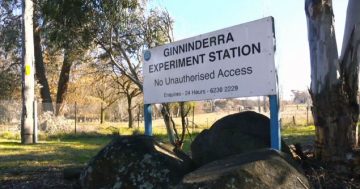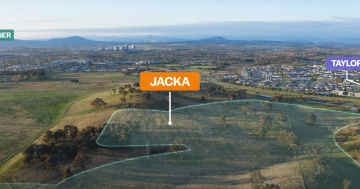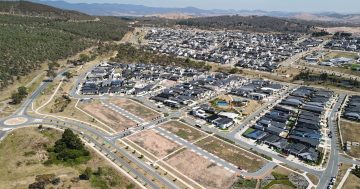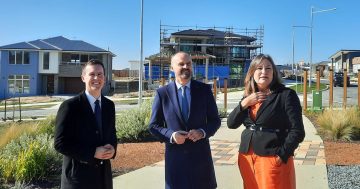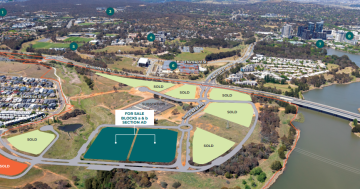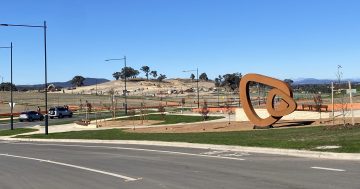
A new land rush is coming in the ACT. Photo: SLA.
The ACT Government’s land sales and development arm has received a $50 million injection in the Budget Review to help accelerate the release of more land for housing.
The Budget Review papers say the one-off payment will allow the SLA to establish a short-term working capital facility and modify its dividend payment timing to require payment in four even instalments.
“These measures will bring the SLA’s capital structure and dividend policy more into line with comparable entities in other jurisdictions and give it more flexibility to respond to risks and opportunities as they arise, as well as maintain prudent liquidity requirements,” they say.
Chief Minister Andrew Barr said the cash boost for the Suburban Land Agency is part of government plans to boost the housing supply overall in line with its agreement with the Commonwealth, which wants 1.2 million homes built across Australia over the next five years.
Mr Barr said more land would also be needed to meet forecast demand generated by the expected interest rate cuts later in the year.
He foreshadowed an announcement on housing in June when he hands down the next Budget, at which the Indicative Land Release Program will also be anounced.
Mr Barr said the government would aim for a mixture of release vehicles and partnerships but would be looking at more englobo releases – where undeveloped, unserviced land can be subdivided, as occurred at Denman Prospect.
He said the government could also bring forward land release for urban renewal precincts such as the CBD, Acton Waterfront and around the Bruce precinct, in partnership with the Commonwealth.
He said there was greater scope in the ACT than anywhere to partner with the Commonwealth on releasing land.
“We have entered into an agreement with the Commonwealth around housing supply from National Cabinet,” he said.
“A key part of that was the Commonwealth working with states and territories to release more land for housing, so we think we’ve got one of the best case studies in the nation with very significant Commonwealth-owned blocks of land well located within existing suburban Canberra.”
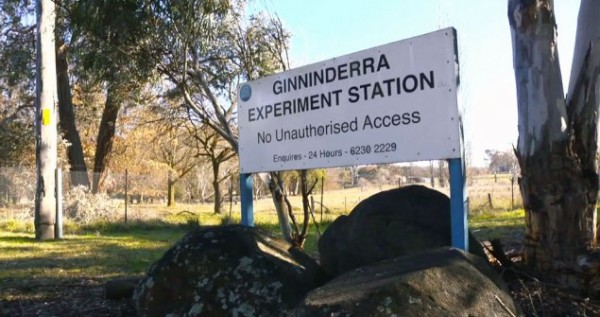
Things may finally be coming to a head on the release of CSIRO land at Ginninderra. Photo: CSIRO.
Mr Barr said significant negotiations were underway with the Commonwealth over the former CSIRO site at Gininnderra, which has been discussed for housing development for many years.
“That is clearly a very significant land release and housing supply opportunity that the ACT and Commonwealth could deliver together,” he said.
“The site is large enough to have an SLA estate, joint venture and englobo release over time. Those are all in the mix as part of the discussion with the Commonwealth.”
Waiving the Commonwealth betterment tax so developers are not put off will also be up for discussion.
Mr Barr said if that were not possible, the ACT would argue that any such revenue should stay in the ACT.
Opposition Leader Elizabeth Lee said the Chief Minister had finally admitted that more land needed to be released for housing to provide more choice and affordability after years of batting away calls from the Liberals to do so.
“These are calls coming directly from Canberrans who are seeking genuine options regarding housing choice,” she said.
The ACT Government has committed an additional $50 million in funding for the Suburban Land Agency to increase land supply.
Master Builders ACT CEO Michael Hopkins welcomed the cash boost to the SLA but said it would amount to nothing if the government did not cut the red tape facing builders.
“If this extra funding is to result in increased housing supply, then the government must start supporting local builders and engaging with industry to understand the real blockages in the planning, design and approval systems which are being felt by local builders and tradies on a daily basis,” he said.
“In 2023, the ACT Government introduced around 125 new pieces of legislation or rules which impact the building industry – at an average of one new regulation every three days.”
He said this would only worsen if it passes the Property Developers Bill to introduce developer licensing without significant amendments.
Mr Hopkins said recent ABS figures showed the cost of house construction in the ACT increased 13.3 per cent in 2023, more than three times the national average increase of 4.1 per cent.
He said construction timeframes for new townhouses in the ACT had blown out by 79 per cent in the past three years compared to a national average of 17 per cent.
“The ACT can’t regulate its way out of this housing crisis. Genuine engagement, consultation and support for small local businesses would be a step in the right direction,” Mr Hopkins said.












